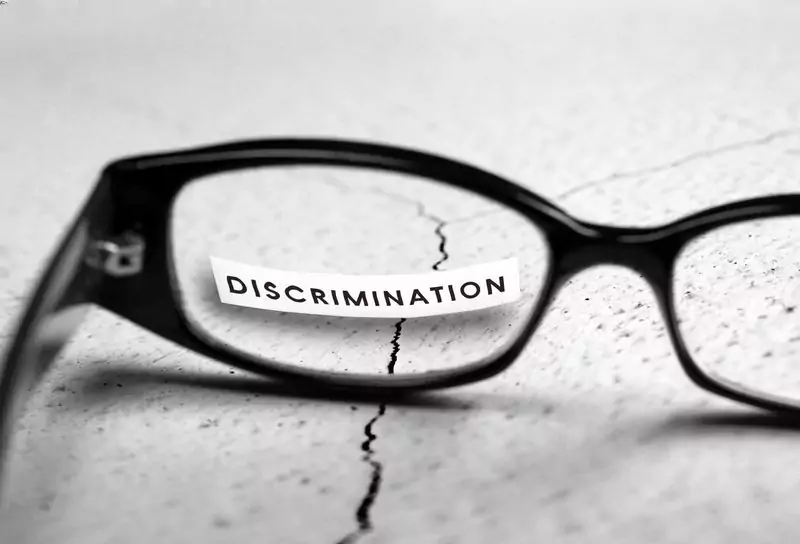
We all know that discrimination in the workplace is unacceptable, and we all know that no federal employee should have to put up with it.
However, not everyone knows that all kinds of discrimination are illegal.
When most people imagine a discriminatory situation, they imagine racial minorities as the victims of racial “majorities.” They may be more accepting of discrimination when it operates in “reverse.”
However, so-called reverse race discrimination is equally wrong and just as illegal as “regular” discrimination.
At this point, you might be asking yourself, What is reverse discrimination? In this article, we will discuss reverse discrimination definition and the situations which best describe reverse discrimination in the workplace.
If you think that you are the victim of reverse race discrimination, contact a workplace discrimination lawyer right away. Our firm proudly offers services to federal employees nationwide.
What Is Reverse Discrimination?
The term “reverse race discrimination” is sometimes considered controversial, and its definition can be challenging to explain.
Reverse discrimination occurs when members of a dominant group face bias in favor of minority or disadvantaged groups. Reverse discrimination based on race or ethnicity is known as reverse racism.
The idea of “reverse racism” focuses on prejudiced attitudes or discrimination against certain racial groups but overlooks a central aspect of racism: power. Racism is defined as “prejudice plus institutional power,” highlighting systemic inequities.
The simplest definition is this – reverse discrimination occurs when majority groups, such as white men, face unfavorable workplace decisions due to their race or gender.
Reverse race discrimination, for example, occurs in situations where historic racial minorities (like blacks or Hispanics) discriminate against white Americans based on their skin color. “Reverse” racism describes discrimination against majority racial groups by minority or historically oppressed groups.
The fact that the target of discrimination belongs to a majority group does not exclude them from the protection of workplace discrimination laws.
Discrimination is discrimination. It does not matter whether the victim is white, black, Christian, Muslim, handicapped, or able-bodied.
Workplace discrimination lawyers know that discrimination laws apply to all groups, and can help any victim of any form of discrimination.
Which of the Following Is an Example of Reverse Discrimination?
Let’s consider a few examples of discrimination to understand which of the following situations constitute reverse discrimination:
- An African-American boss repeatedly harasses his white subordinate because of his race, uses racial slurs, and denies him a promotion because the subordinate is “way too white for this office”;
- A woman repeatedly makes derogatory sex-based comments to her male co-worker, frequently derides him as “just another stupid man,” and tells him that a woman could do his job better;
- A Christian employee humiliates his Hindu colleague by trying to make him eat beef and telling him that his faith “has too many Gods.”
Which of the following is an example of reverse discrimination in America? If you guessed the first two scenarios, you’d be correct.
The first scenario was reverse race discrimination because a black man, a member of a racial minority, was discriminating against a white man based on race.
Similarly, the second scenario also constituted reverse discrimination.
Sex-based discrimination has historically targeted women, so reverse discrimination occurred because a woman was making condescending sex-based comments to a man.
However, the third scenario was not reverse discrimination because Christianity is a majority religion in the United States.
So while the Christian in that scenario was harassing and potentially discriminating against their Hindu coworker, that would constitute normal discrimination of a minority.
What Should I Do If I Am the Victim of Reverse Discrimination?
Discrimination remains the same regardless of the victim’s race, gender, or religion. If you are experiencing reverse discrimination, consider taking the following actions:
- Tell the offender to stop, if you feel comfortable doing so;
- Record your interactions with the individual;
- Consult a supervisor about the problem if possible; and
- Go speak to someone in your agency’s EEO (Equal Employment Opportunity) office.
After you have taken these first steps, you need to consider hiring an attorney who handles cases of discrimination at work. Hiring an attorney for employment discrimination can help to resolve the reverse discrimination problem quickly.
Furthermore, employment discrimination attorneys are familiar with all kinds of discrimination and can evaluate your case to see if you are eligible to obtain compensation.
Finally, if you file a complaint against your agency, a federal employment workplace discrimination lawyer can help your case by collecting evidence, obtaining witnesses, and conducting settlement negotiations.
Do You Need a Workplace Discrimination Attorney?
Employment discrimination is always wrong, including reverse discrimination.
Now that you know reverse discrimination’s definition, you will know when to contact an employment discrimination attorney.
If you are currently experiencing such discrimination, you need an employment discrimination attorney right away. However, not all attorneys are of the same quality.
Therefore, it is critical that you hire an attorney that has experience with your kind of case and is familiar with the unique features of the federal workplace.
Contact Our Federal Employment Attorney To Discuss Your Case Today
Here at the Federal Employment Law Firm of Aaron D Wersing PLLC, we are dedicated to helping federal employees stand up for their rights.
Over the years, our firm has helped countless federal employees with all kinds of discrimination complaints.
Unlike other law firms, we are familiar with all of the dynamics of the federal workplace. We will help you stand up for your rights and hold discriminatory actors accountable.
Even if you don’t know whether you need an attorney, you have nothing to lose by setting up an appointment. Contact us right away.


